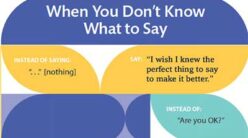I Am a Survivor: Claire Mason
Claire Mason was born with a serious autoimmune disease, which led to the diagnosis of several other life-altering conditions early in her life, including type 1 diabetes and multiple sclerosis. But in spite of her health problems, Claire was able to enjoy a relatively normal adolescence. By her mid-20s, she was beginning a promising career in the legal field, and she was running ultramarathons as a hobby.
 Then, at the age of 26, Claire received yet another diagnosis: stage 3 kidney failure. If the future was manageable before, it suddenly looked bleak. Claire had to give up running, and, with the prospect of dialysis, it looked as though holding down a full-time job might be impossible. She was facing increasing disability and dependence. And she was alone. Overwhelmed by Claire’s medical conditions, her boyfriend had ended their relationship, telling Claire, “Nobody wants to put up with you being sick all the time.”
Then, at the age of 26, Claire received yet another diagnosis: stage 3 kidney failure. If the future was manageable before, it suddenly looked bleak. Claire had to give up running, and, with the prospect of dialysis, it looked as though holding down a full-time job might be impossible. She was facing increasing disability and dependence. And she was alone. Overwhelmed by Claire’s medical conditions, her boyfriend had ended their relationship, telling Claire, “Nobody wants to put up with you being sick all the time.”
Claire began making plans to overdose. “The threat of facing my future disabled, unwanted, and completely alone led me to the conclusion that I had no other choice,” she adds.
But the same night that Claire planned to take her life, her health took a sharp turn for the worse, and she landed in the emergency room before having a chance to attempt an overdose. A nurse in the hospital that night realized that Claire was not mentally stable and intervened. As a result, Claire was referred to talk therapy to manage the emotional and psychological aspects of her conditions, and she was connected to a network of other individuals who were also living with kidney failure.
That involvement in therapy was pivotal. Seeing that others with kidney failure could still thrive gave Claire some perspective on her disease. Meanwhile, she was humbled by how many people put energy into caring for her, and their investment in her gave her a new sense of purpose.
“With all the people who have put their effort into me, I feel like I should give back,” she says.
Today, Claire is the office manager for the Joseph Farzam Law Firm, a multimillion dollar legal office. She knows that her quality of life will decrease over time as a result of her conditions, and she has a strong sense of the inevitability of death, but she no longer has a desire to end her life prematurely.
“I feel like it would be hypocritical to say, ‘It gets better,’” says Claire. “It might not.” But she takes comfort in knowing that things change, and however bad it is right now, it’s not going to be exactly this kind of bad tomorrow. More importantly, she’s discovered that her ability to cope keeps improving. “The inevitability of chronic illness is that it gets worse,” she says. “But I get stronger.”
I Am a Survivor: Ann Taylor
Ann Taylor’s early life was happy. She was raised in a loving home with supportive parents, and she was social and did well academically. After she married and had two sons, life seemed good.
 In her mid-40s, however, Ann was hit with catastrophe. Within a year and a half, both of her parents died and her husband left her. Overwhelmed, she fell into severe depression and anxiety. Though she’d never thought of suicide previously, one night in 2009, shortly after her husband had left, Ann spontaneously tried to overdose. A friend happened to come check on her and took her to the hospital, but over the next few years, Ann made three more attempts to take her own life (one of which was severe enough to put her in a coma for three days).
In her mid-40s, however, Ann was hit with catastrophe. Within a year and a half, both of her parents died and her husband left her. Overwhelmed, she fell into severe depression and anxiety. Though she’d never thought of suicide previously, one night in 2009, shortly after her husband had left, Ann spontaneously tried to overdose. A friend happened to come check on her and took her to the hospital, but over the next few years, Ann made three more attempts to take her own life (one of which was severe enough to put her in a coma for three days).
A turning point came in 2013 when Ann joined a support group for survivors of suicide attempts. After participating for more than a year, she was asked to become a peer facilitator. That role was rewarding enough that in 2015, she decided to go further and become a crisis counselor on a suicide prevention lifeline.
“I can take my own experience, however awful it was, and help other people who are feeling the same,” says Ann. “As much as I do still struggle, I think I have a lot to give to suicidal people.”
Today, Ann still wrestles with strong suicidal thoughts, but she has learned to live with them. She avoids risky situations: no alcohol, no medicines in the house, not too much time alone. And she has learned to read her own state of mind and reach out for help.
“I still see myself at risk, but I’m more aware of different sensations and feelings I have, and I think I’m a little bit better at being able to cope and reach out to my psychologist when I get scared,” says Ann.
To others who are feeling suicidal, Ann’s message is that there is help available, whether in the form of medical professionals, the National Suicide Prevention Lifeline, or support groups. And for the moments when none of that is sufficient and the desire to end it all is overwhelming, she encourages hanging on just one more night.
“Our emotions are constantly changing, and what we feel now in this hour might be very different from what we feel in the next hour,” she says. Tonight, all might seem lost, but “there is quite a huge possibility that tomorrow morning when you wake up, you aren’t going to feel that way.”
Jamie Santa Cruz is a writer, wife, and mother based in Colorado.






